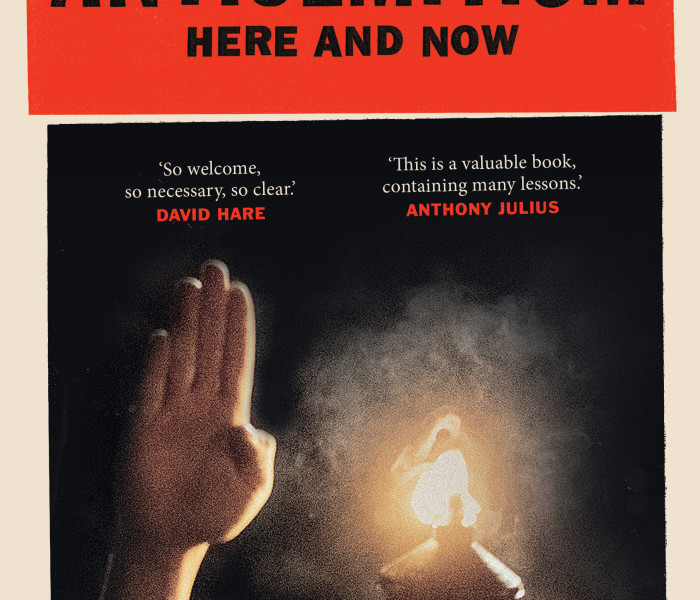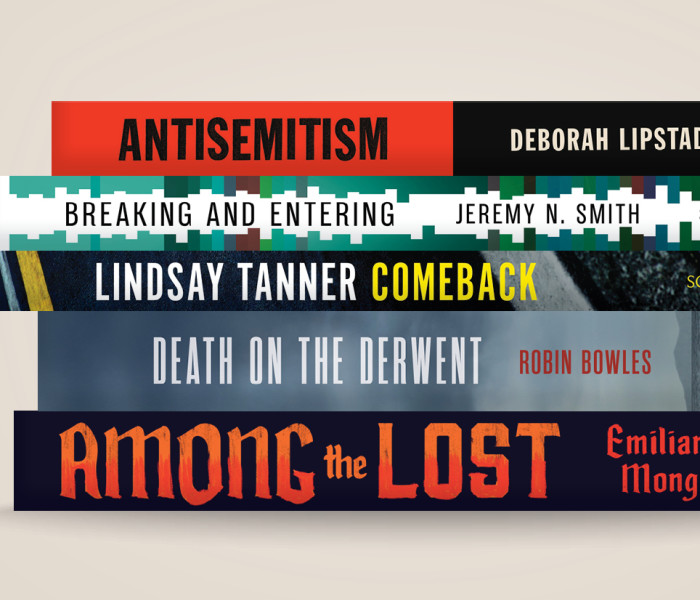‘Lipstadt’s book aims not to break new scholarly ground but to awaken her audience to the nature, persistence and scale of the threat, along with the insidious ways in which it seeks to disguise itself. She succeeds … [Lipstadt] has written a book that combines erudition, clarity, accessibility, and passion at a moment when they could not be needed more.’
Bret Stephens, The New York Times Book Review
‘The book deals with Trump, the alt-right, social media and Holocaust denial, European populism, Islamism, leftist anti-Zionism and Jeremy Corbyn. So it covers, and covers well, the big concerns of modern Jewry. … a valuable book.’
The Times
‘Deborah Lipstadt is that rare person, able to play a leading part in events and to fathom their meaning. Having triumphed in a court-case brought by an anti-Semite, she now explains anti-Semitism to us, and thus performs a double service. This is a valuable book, containing many lessons.’
Anthony Julius, deputy chair of Mishcon de Reya, and author of Trials of the Diaspora
‘A must read at the time of a mounting wave of aggressive nationalism and xenophobia in the world today.’
Professor Jan Gross, author of Neighbours: the destruction of the Jewish community in Jedwabne, Poland
‘To say anything worthwhile about antisemitism you need calm, lucidity, intelligence, and a faultless moral compass, all powered by a proper feeling for racial justice. Deborah Lipstadt has the entire skillset. That’s why her new book is so welcome, so necessary, and so clear.’
David Hare
‘Antisemitism comes in different shades, all of them ugly — not least when it comes from those who regard themselves as champions of liberation. To fight this abomination in all its shades, Deborah Lipstadt has given us a sage, sober, and lucid manual for the perplexed and willfully blind. An outstandingly useful book.’
Todd Gitlin, author of The Sixties: Years of Hope, Days of Rage
‘This … could not be more topical. Connecting different currents in contemporary culture, such as the plight of the Palestinians, the resurgence of right-wing nationalism and left-wing liberal tolerance of hostility to Jews, Lipstadt explores how contradictory forces have found common scapegoats.’
The Bookseller
‘The most powerful and important element of Antisemitism is Lipstadt’s clarity on the impact of words. Violence doesn’t just appear out of the blue – it is enabled and encouraged by language … Her book is essential reading for anyone perplexed about antisemitism and how we got to this point.’
Ruth Smeeth, Mail on Sunday
‘A timely book about contemporary anti-Semitism – timely because all the signs are that we are entering an era when this ancient prejudice is having new life breathed into it.’
Hugh Linehan, The Irish Times
‘[Antisemitism] covers, and covers well, the big concerns of the modern Jewry … A very readable account and, like the author, it’s gutsy.’
Daniel Finkelstein, The Times
‘This is not an academic history of antisemitism. It’s something more valuable — an act of zooming in the moral lens on what is happening in the world today ... Read Lipstadt’s new book. And then give it to your children and grandchildren. It is that good — and it is that relevant.’
Jeffrey Salkin, Religion News Service
‘Lipstadt’s insight and perspective contextualise current events ... crafting an informative read for those interested in social justice and political and Jewish history.’ STARRED REVIEW
Library Journal
‘Keeping her tone measured and carefully noninflammatory, Lipstadt presents an intelligent, evenhanded explanation of why Jews come under attack today. Informed, historically sound, and deeply rational, her book offers both convincing reasons for the recent rise of antisemitism and apt advice to ‘call out and combat’ it.’
Publishers Weekly
‘[T]he timeliness of Lipstadt’s nuanced and accessible discussion of contemporary antisemitism cannot be overstated ... Lipstadt provides a useful taxonomy of antisemites ... Antisemitism: here and now is a sobering but accessible read by an eminent scholar.’
Helene Meyers, Washington Independent Review of Books
‘Deborah Lipstadt’s new book, Antisemitism: Here and Now, [is] an important and timely reminder of the continued presence and impact of this ‘oldest hatred’ … Unlike the books that came before, however, Antisemitism possesses an air of intimacy and urgency. This is a lot more than a historian’s recording of events or challenge against academic fraud.’
Ronan Breathnach, Irish Examiner
‘Antisemitism Here and Now, could not be more accurately titled, timely or impactful … Her book makes a convincing case that we need an entirely fresh start to Holocaust education: the vast sums spent on remembrance events and buildings have not achieved their purpose.’
Ruth Smeeth, Standpoint
‘A rigorous examination of [antisemitism’s] alarming rise worldwide ... Her central thesis, that “genocide begins with words not with acts of violence” is a reminder of the urgent need to call out and resist anti-Semitism in all its guises.’
Australian Financial Review
‘The present book is not a history but a reckoning with antisemitism in its current guises and contortions.’
Geoffrey Brahm Leven, Canberra Times
‘In a very accessible and thoroughly interesting book, the author has managed to pack in a terrific amount of thoughtful material, ranging from why she prefers to spell it ‘antisemitism’ (no hyphen or capitalisation) through to her rugged defence of free speech.’
Anthony Smith, NZ International Review
‘Another vital read from Lipstadt, Antisemitism is an all-encompassing look at everything from the plight of the Palestinians to the British Labour Party.’
Ali Pantony, Glamour
‘Lipstadt isn’t just interested in compiling a list of affronts, abuses, and attacks, which would be, in itself, a substantial achievement. She also explores with remarkable insight and balance the difference between anti-Semitism and racism ... [A] timely, nuanced, clear, accessible, and ultimately optimistic book.’
Ilana Snyder, Australian Book Review
‘Professor Lipstadt traces a dramatic rise in antisemitism since about 2000 with a particular uptake since 2016.’
Nick O’Malley, Sydney Morning Herald






